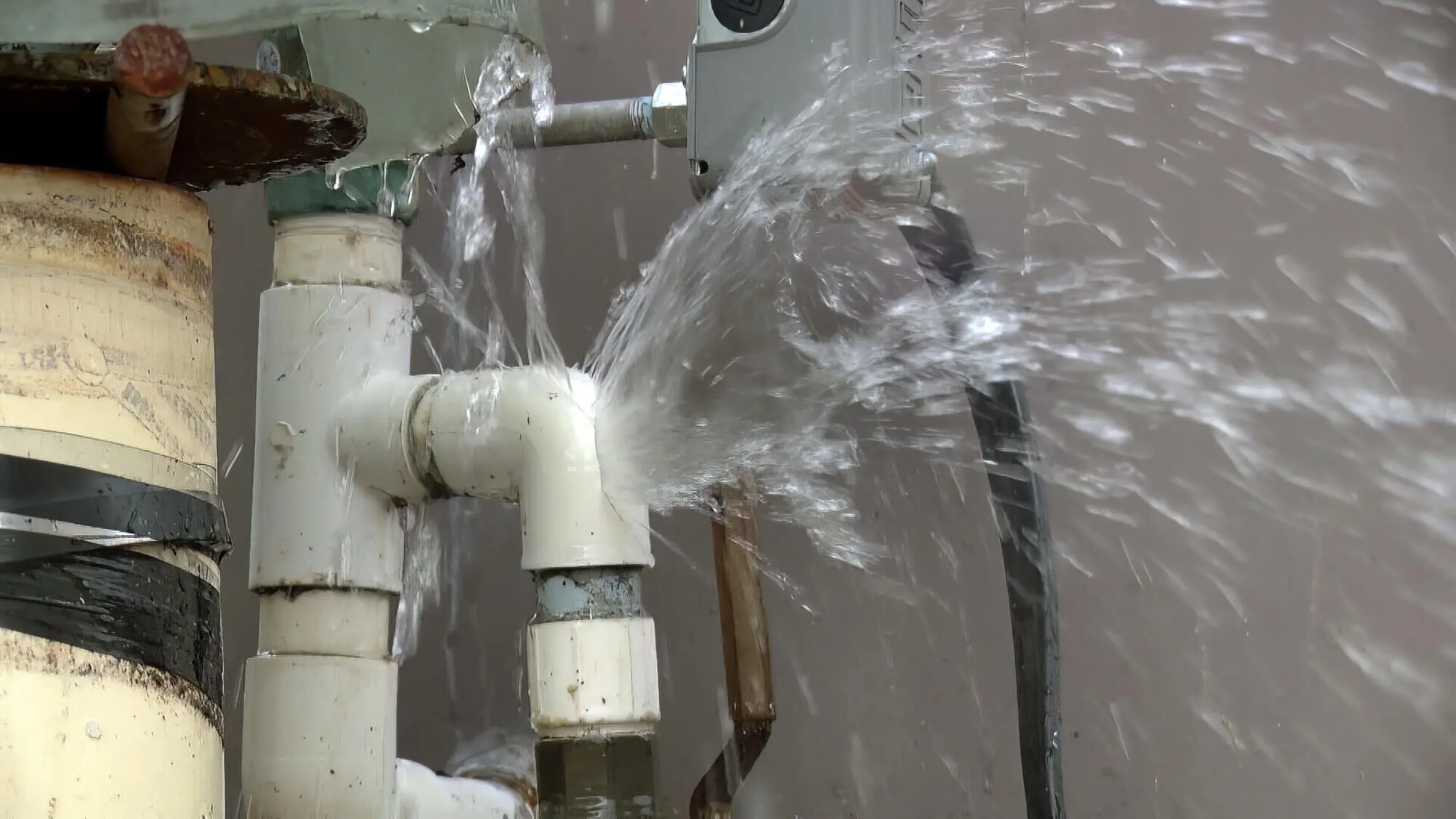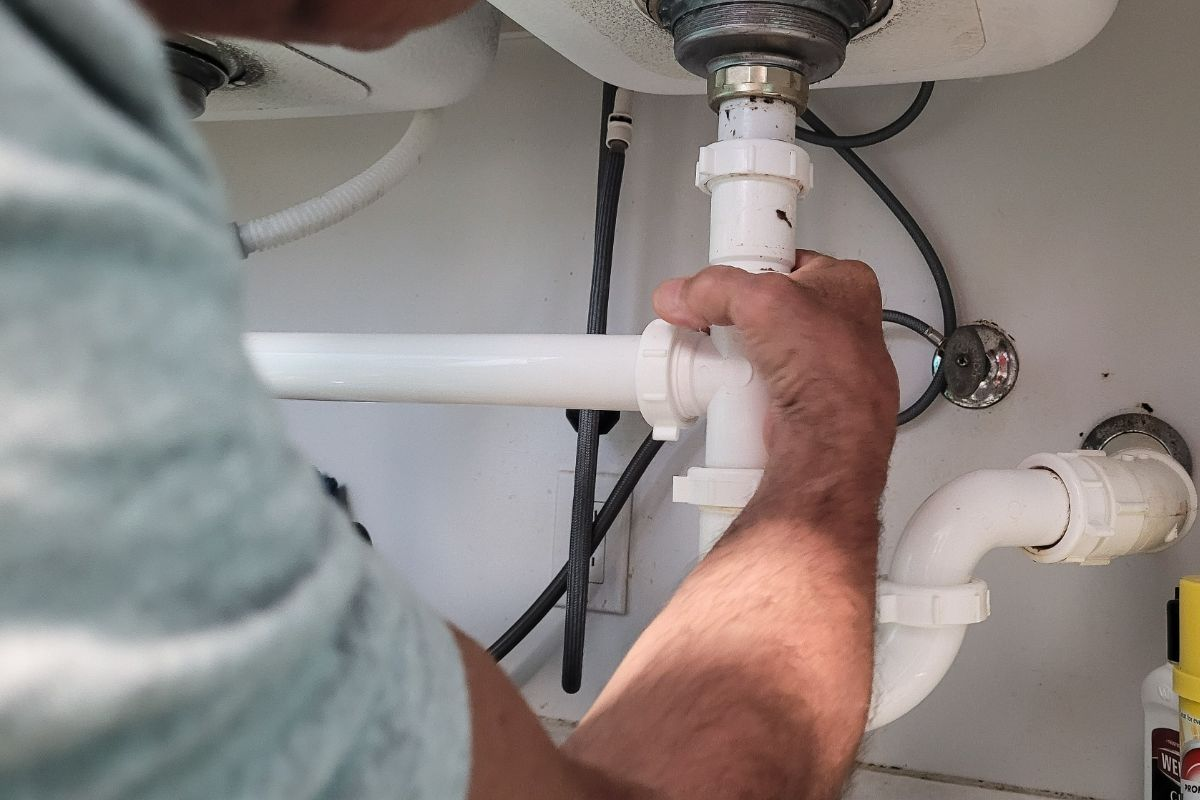Water pressure plays a crucial role in the performance of plumbing systems. It refers to the force with which water moves through pipes and fixtures, and is typically measured in pounds per square inch (psi). Adequate water pressure is necessary for proper functioning of appliances such as showers, faucets, and toilets. Insufficient or excessive water pressure can lead to a range of plumbing problems, ranging from annoying drips to costly leaks and bursts.
In this article, we will explore the factors that influence water pressure and how it affects the overall performance of plumbing systems. We will also discuss the different types of water pressure issues and their potential consequences. By understanding how water pressure impacts plumbing performance, homeowners can take necessary steps to maintain optimal levels and prevent any potential problems.
What is Considered Adequate Water Pressure?
Adequate water pressure is typically defined as a range of 45-80 psi, with the ideal pressure being around 60 psi. This range allows for sufficient force to move water through the pipes and fixtures without causing damage or excessive strain on the system.
Factors such as elevation, distance from the main water source, and pipe size all play a role in determining the appropriate water pressure for a home. For instance, homes located at higher elevations may have lower water pressure due to gravity, while those further away from the main source may experience drops in pressure.
It is important for homeowners to regularly check their water pressure using a pressure gauge attached to an outdoor faucet. If the reading falls below 45 psi or exceeds 80 psi, it may indicate an issue with the plumbing system that needs to be addressed.
How Does Low Water Pressure Affect Plumbing Performance?

Low water pressure can be caused by a variety of factors, such as clogged pipes, leaks, or faulty fixtures. Regardless of the cause, it can greatly affect the performance of plumbing systems.
One of the main consequences of low water pressure is reduced flow from fixtures. This means that showers may have weak streams and toilets may take longer to refill after flushing. Additionally, appliances such as washing machines and dishwashers may not function properly without adequate water pressure.
Furthermore, low water pressure can also lead to backflow issues. When there isn’t enough force pushing water through the pipes, it can create a suction effect and cause contaminated water to flow backwards into the clean water supply. This can be a health hazard and should be addressed immediately.
Regular maintenance and prompt repairs can help prevent low water pressure and its potential consequences. Homeowners should also educate themselves on the signs of low water pressure so that they can take action before it leads to more serious plumbing problems. So, maintaining adequate water pressure is crucial for ensuring optimal plumbing performance.
How Does High Water Pressure Affect Plumbing Performance?
While low water pressure poses its own set of problems, high water pressure can also have detrimental effects on plumbing systems. When the pressure exceeds 80 psi, it puts excessive strain on pipes and fixtures, causing them to wear out faster.
One common issue caused by high water pressure is leaks. The force of the water can cause small cracks and gaps in pipes to expand, leading to costly leaks that require immediate attention. High water pressure can also cause fittings and connections to loosen over time, resulting in even more leaks and potential flooding.
Another consequence of high water pressure is noisy pipes. The force of the water rushing through the pipes can create loud banging or vibrating noises, which not only disrupts daily activities but also indicates underlying issues with the plumbing system.
To prevent these problems, homeowners should regularly check their water pressure and invest in a pressure regulator if necessary. This device helps maintain consistent levels and prevents any sudden spikes in water pressure that could damage the plumbing system.
How To Maintain Optimal Water Pressure?
To maintain optimal water pressure, homeowners should take proactive measures to monitor and address any potential issues. Regular maintenance by a professional plumber can help catch and fix any leaks or clogs before they lead to more serious problems with water pressure.
It is also important for homeowners to be mindful of their water usage habits. Conserving water not only benefits the environment but also helps maintain adequate water pressure in the plumbing system.
In addition, investing in tools such as a pressure gauge and a pressure regulator can help ensure that water pressure levels are within the recommended range. These devices allow homeowners to keep an eye on their water pressure and make adjustments as needed.
By maintaining proper and consistent water pressure, homeowners can prevent costly repairs and ensure the efficient functioning of their plumbing systems. Regular check-ups and prompt action can go a long way in maintaining optimal water pressure and preventing any potential issues.
Can A Professional Plumber Help with Water Pressure Issues?
Yes, a professional plumber can be a valuable resource in addressing water pressure issues. They have the experience and expertise to identify the root cause of low or high water pressure and provide effective solutions.
In cases of low water pressure, plumbers can perform inspections and clean out any clogs or debris that may be blocking the pipes. They can also check for leaks and fix them before they worsen.
For high water pressure, plumbers can install pressure regulators to maintain consistent levels and prevent damage to the plumbing system. They can also inspect pipes for any potential weaknesses or wear and tear caused by excessive pressure.
Plus, hiring a professional plumber for regular maintenance can help prevent water pressure issues from arising in the first place. They can provide valuable advice on how to conserve water and maintain optimal pressure levels.
Homeowners should not hesitate to seek professional help if they experience any significant changes in their water pressure. A plumber’s expertise can save time, money, and ensure the efficient functioning of plumbing systems.
Why Water Pressure Matters for Homeowners
Water pressure may seem like a minor concern, but it plays a crucial role in the overall performance and functionality of plumbing systems. Whether it is low or high, water pressure can cause various issues that could lead to costly repairs if left unaddressed.
Low water pressure can result in reduced flow from fixtures and backflow problems, while high water pressure can cause leaks and noisy pipes. Regular maintenance, mindful water usage habits, and investing in tools such as pressure gauges and regulators can help maintain optimal water pressure levels.
In cases where homeowners experience significant changes in their water pressure, seeking professional help from a plumber is highly recommended. They have the knowledge and skills to identify and fix any underlying issues that could be causing water pressure problems.
How A Profesional Plumber Can Help Maintain Water Pressure

A professional plumber can bring a wealth of knowledge and experience to help homeowners maintain optimal water pressure levels. They can perform regular inspections and clean out any clogs or leaks that could be affecting the flow of water.
In cases of low water pressure, plumbers can also check for backflow issues and address them promptly to prevent health hazards. For high water pressure, they can install pressure regulators to keep levels consistent and prevent damage to pipes and fixtures.
Additionally, plumbers can provide valuable advice on how to conserve water and reduce strain on the plumbing system. Regular maintenance by a professional plumber is crucial in preventing potential problems with water pressure from arising.
Plus, hiring a professional plumber for regular check-ups can save homeowners time and money in the long run by catching and fixing any issues before they escalate. A professional plumber is an essential resource in maintaining optimal home’s water pressure and ensuring the efficient functioning of plumbing systems.
Contact Boldt’s Plumbing & Heating For Your HVAC & Plumbing Needs
If you areliving in the areas of Baldwin, Hudson, or any surrounding communities, and are in need of top-notch plumbing or HVAC services, look no further than Boldt’s Plumbing & Heating. With a team of dedicated professionals who prioritize customer satisfaction above all else, Boldt’s is the go-to company for all your plumbing and heating needs.
Boldt’s Plumbing & Heating offers an array of services including furnace installation and repair, air conditioning maintenance and replacement, plumbing repairs and replacements, water quality testing and filtration systems, sewer installation, backup drain cleaning and camera inspections. In addition to this impressive list of services, Boldt’s also provides soil testing and design for sanitary systems.
With over 70 years in business, Boldt’s has built a strong reputation for exceptional service and availability. They are also committed to providing affordable solutions for their customers, offering financing options for equipment replacement or new installation.
Call us at Baldwin: 715-684-3378 or Hudson: 715-386-4445 for emergency services and we will dispatch our team to assist you promptly. You can also join our discount club, which offers discounts on HVAC maintenance and repairs year-round.
FAQs
How does high pressure affect plumbing performance?
High pressure can cause damage to pipes and fixtures, leading to leaks and bursts. This can result in expensive repairs and even workers comp claims if it causes injury to a person. Using a pressure reducing valve can help maintain optimal performance by lowering the pressure to a safe level.
What role does a water pressure gauge play in maintaining normal water pressure?
A water pressure gauge is essential for monitoring the incoming water pressure to ensure it stays within the normal water pressure range. If the gauge shows pressure drops or spikes, it may indicate a problem that needs addressing to prevent damage and ensure optimal performance of the plumbing system.
How can a pressure tank help with water flow and pressure drops?
A pressure tank helps stabilize water flow and reduce pressure drops by maintaining a consistent pressure in the system. This is especially useful in homes with varying water demands, ensuring that both hot water and cold water flow remain steady and the plumbing system operates efficiently.
Why is pipe diameter important for maintaining optimal performance in plumbing?
The pipe diameter directly affects water flow and pressure. Pipes that are too narrow can cause high pressure and restrict water flow, leading to inefficient plumbing performance. Ensuring the correct pipe diameter is used helps maintain optimal performance and prevents issues such as high pressure that could necessitate the installation of a water pressure regulator.
It is essential to address any significant changes in water pressure promptly and seek professional help if needed. With Boldt’s Plumbing & Heating, you can trust that your plumbing and HVAC systems are in good hands. Don’t hesitate to contact us for all your plumbing and heating needs in the Baldwin and Hudson areas. We look forward to serving you! So why wait? Give us a call today!
